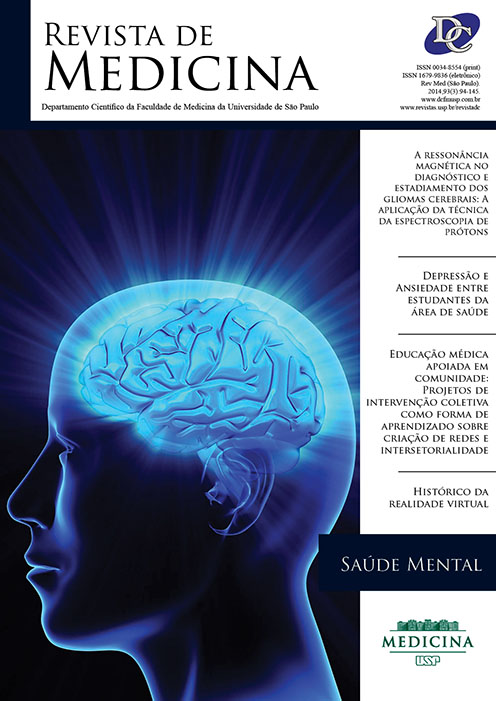Psychosocial and health-related stressors faced by undergraduate medical students
DOI:
https://doi.org/10.11606/issn.1679-9836.v93i3p125-134Palavras-chave:
Stress, psychological, Students, medical/psychology, Social support, Adaptation, Health education/standards.Resumo
Stress is common among medical students and is associated with increased risk of burnout, anxiety and depression, alcohol and drug abuse, social difficulties, suicidal ideation and suicide. The purpose of this literature review was to identify the sources of stress in undergraduate medical students. In order to achieve that, we conducted a search for papers published in the Medline database from 2003 to 2014. Due to the extension of sources of stress identified in this population and our interest on the subject, we chose to include only papers that addressed specifically two main categories of stressors: psychosocial and/or health-related. We divided the psychosocial sources into four groups: social, familial, infrastructural and not specified. Among the most relevant social sources, we found loneliness, social isolation, interpersonal conflict, social relationships and worry about the future. Familial sources of stress included high parental expectation, family problems and financial problems. Among the infrastructural sources, we found relevance for absence of an optimal place to study outside the university and accommodation away from home, particularly for first-year students and for males. Few studies have focused on health-related sources of stress. The most relevant sources of health-related stress were the quality of food in mess and sleeping difficulties. While the relevance of some sources varied according to the medical school, the importance of some sources such as quality of food in mess, sleeping difficulties and worry about the future was consensual among the studies. Of relevance is the fact that most of these sources of stress can be reversed. For example, a healthy relationship has been reported to protect against stress; thus, programmes aimed at the improvement of students’ relationships may be effective in decreasing the stress associated with loneliness, social isolation and interpersonal conflict. The relevance of a stressor should be evaluated in each school taking into consideration the influence of its context peculiarities. Although several studies have reported the sources of stress, studies looking specifically at each source, investigating its impact, related factors and feasibility of change are warranted.Downloads
Os dados de download ainda não estão disponíveis.
Downloads
Publicado
2014-09-04
Edição
Seção
Artigos
Como Citar
Pereira, N. K. C., Padoim, I., & Fraguas Junior, R. (2014). Psychosocial and health-related stressors faced by undergraduate medical students. Revista De Medicina, 93(3), 125-134. https://doi.org/10.11606/issn.1679-9836.v93i3p125-134




